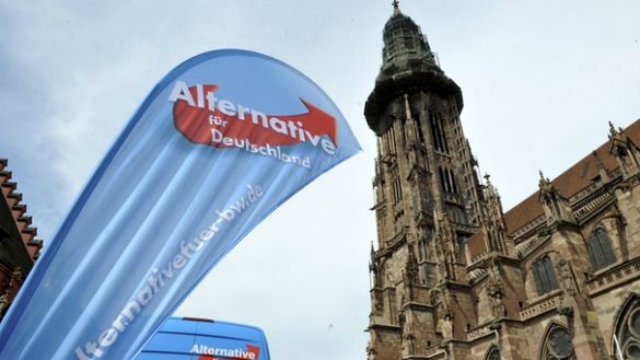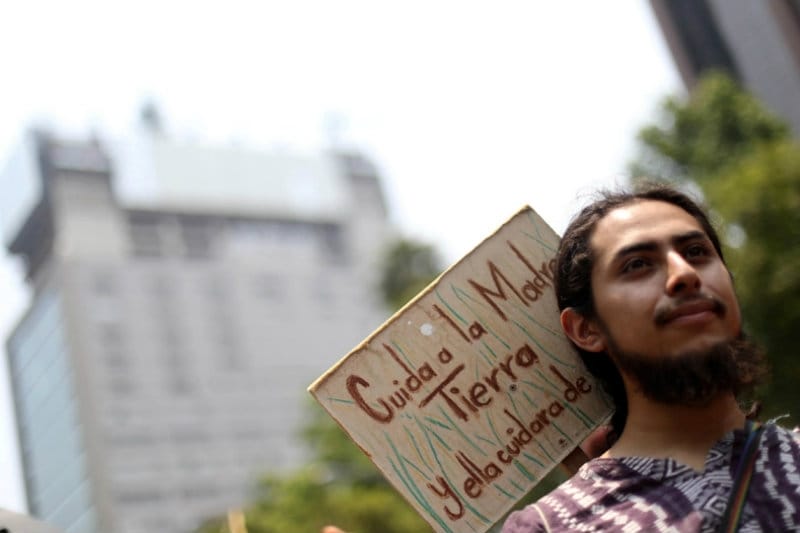
Last Sunday the far-right Alternative für Deutschland (AfD) entered the German parliament. The AfD originates in Chancellor Angela Merkel’s pushing the encrusted conservatives in her Christian Democrat Union (influential in Chile via its Konrad Adenauer Foundation) towards the centre, thus leaving many disgruntled cadres looking for a new home. This home was finally built during the Eurocrisis, as the ruling coalition poured public money into failing banks, but routing it via Greece for political reasons.
Budget hawks, conservative and liberal alike, revolted, and tolerated closet fascists moving with them into their new home, the AfD. They both exploited and manufactured a breakdown of taboos on how to talk about foreigners and were emboldened by the yellow press which was peddling ugly stereotypes about lazy southerners thus normalizing racist vocabulary. The ur-AfD’s technocratic leadership, however, failed both to uphold momentum and the party faltered by late 2014, but when months later the refugee crisis broke, provoked by inept political leadership on top of an ignorant electorate, the party re-emerged. Yet, this time culture took precedence over money, giving the nationalists, incubated in the AfD’s neoliberal womb, more leverage. They also ride the train of the times in which elites have failed to update the post-World War II pacifist discourse.
Read more: Too Deep in the South China Sea
The failure of renewing this discourse represents a rupture. In the capitalist West and the communist East fascist impulses had been suppressed with education and propaganda. Essentially, the Soviet-German gerontocracy created the rationale for its power by positing communism as superior system, and since the Nazis wanted to destroy it fascist thoughts in the GDR amounted to an attack on the state. GDR society was no paradise, but the country did definitely not want to see the National People’s Army engaged in foreign adventures.
In the West, the population had been confronted more bluntly with the horrors of the Nazi military/extermination machine and consensus arose that to prevent another Auschwitz citizens had to be able to grasp the extent and origins of the violence committed. This was the beginning of so-called ‘Erinnerungskultur’ (culture of remembrance). This culture involves intellectual and emotional confrontation with the results of the unspeakable atrocities the Germans ‘Volk’ brought on fellow humans, leading to the establishing of pacifism and moderation as barriers against such crimes happening again. But elites took Erinnerungskultur for granted, missing the generations that won’t accept guilt for past crimes but still need to understand the relevance of this past for the future. Such elite failure is related to a refusal to address the fusion of German culture and capitalism.
Read more: About Inside Out and Outside In
The German concentration/extermination camp represents a gruesome example and also allows a glimpse into the abyss of German culture. Camps were constructed to kill victims with the least effort possible for the killer, while also enabling the processing of the remains the Nazis found valuable, like gold teeth. To this end, engineering and logistics skills, knowledge about chemicals, among others, all cultivated from long before the industrial revolution, was diverted into the production of death factories and the associated extermination industry. Such skills, however, also have turned Germany into an industrial powerhouse before the war, and an indispensable cog in the post-war global manufacturing economy. The resulting prosperity served as bulwark against radical influence as it provided the resources for Erinnerungskultur-based universal education.
But while this order enclosed the German spirit and directed it towards pacifist ends, the currently changing order is setting the spirit free, and liberal and national forces threaten to serve their ugly mix for the bigger stage yet again. The US foreign-policy establishment believes it’s time to let take Germany more responsibility, as discussed in Foreign Affairs Magazine. There, transatlanticist and well-connected publisher of the German weekly Die Zeit, Josef Joffe, urged Germany, among other things, to ‘get rid of its civil religion of Pacifism.’ A key figure in the AfD, Björn Höcke, who mimics Joseph Goebbels in manner and jargon, echoed Joffe, demanding that ‘We need nothing else than a 180-degree turn in remembrance policy.’ Both express the common sentiment in their respective circles, not fringe opinions.
Read more: Brexit Ripple Effects
The German media plays a questionable role in these developments. Firmly rooted in the liberal/conservative spectra, it tolerates eloquent war-mongering by an avowed Atlanticist, but thrashes a would-be brownshirt saying the same in more brutish fashion. Consensus politics in the Reichstag, however, should still get the military upgrade approved, and if the AfD together with the European far-right further consolidates a return to atomised national security policy would follow. This would trigger an arms race, with the potential to foment German expansion yet again.
Liberal interventionists seem blind to these dynamics because they perceive war as a variable in international relations, whereas nationalists perceive it as tool to satisfy their minority complex. But both would create a loose and militarised Germany which would either be seen as threat or suspicious but potent ally by Russia, especially in case of further far-right consolidation. The latter, in turn, would cause unease with France and Britain. Liberal interventionists and nationalists may not share the same matchbox, but they hold matches to the same powder keg.



